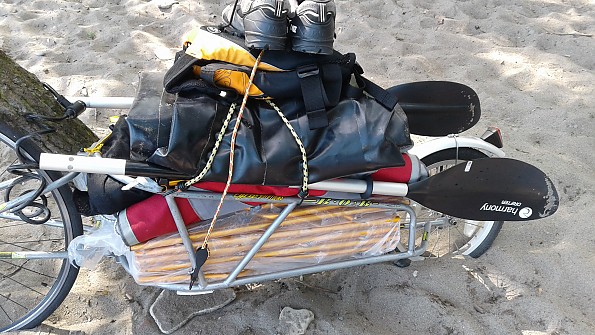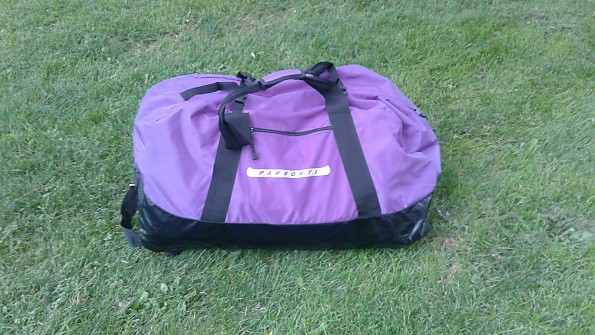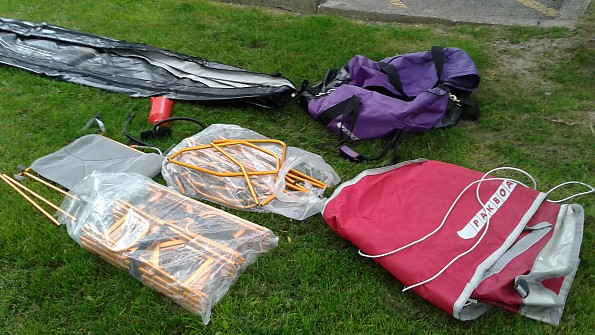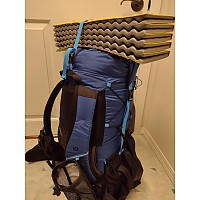Pakboats XT-15 Solo
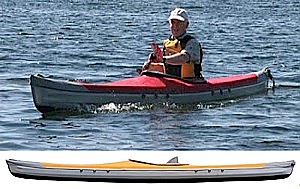
A 15' solo folding, skin-on-frame kayak.
Pros
- Folding, so can be taken on planes, trains, buses, or bicycles
- Light
- Tracks well
- Holds and carries all your gear easily
Cons
- Assembly time/disassembly time
- Somewhat fragile compared to a traditional hard sided kayak
I had been looking at Pakboats for a few years now and was tossing around my options, canoe or kayak? I live in an apartment and unless I was willing to go on a waiting list at my local canoe club for a storage spot I would most likely have to go the folding or inflatable route—carrying a canoe or kayak up 16 flights of stairs was out of the question.
As I don't have a car, transporting it was also an issue, so a folding boat made the most sense. It all fits nicely in my Bob Yak bicycle trailer and at 32 lbs is not too much weight to tow around. I live a 5-minute walk from Lake Ontario, but often ride to rivers or the harbour where paddling over to the islands is always nice and offers more protection from the wind and calmer waters.
This summer I found a lightly used demo model that was in almost new condition for a great price from my local Pakboats dealer and jumped on the opportunity. It was the Pakboats XT-15 an older generation solo 15 ' kayak with a double 'I' beam aluminium frame and a thick PVC skin, with a set of three inflatable sponsons on each side that stretch the skin onto the frame. It has a strip of velcro on each side that the deck attaches to, making for a quite waterproof deck.
The inflatable seat is extremely comfortable and fully adjustable. It is rated for a maximum 300 lb load. I'm 5'11" and 190 lbs and find getting in and out of the boat is very easy. At 15' long there is plenty of room to carry enough gear for multi-day trips, with access to the front or back made easy by the fact the deck is held down with velcro.
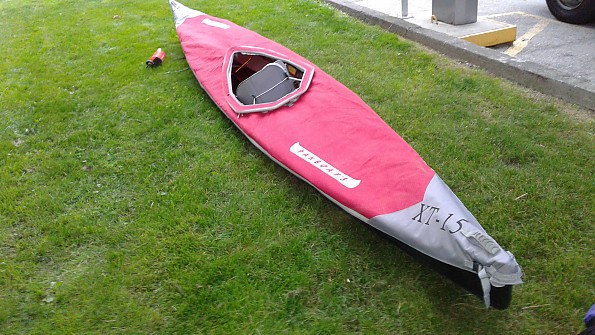
It folds up into a 168 l. duffel bag, which easily contains the frame, PVC skin, a nylon deck, repair kit, air pump. It also is more than big enough for me to store my water shoes, PFD, bailing pump, a four-piece paddle, and throw line. I went on a six-night trip this fall and crammed everything into a 104 l. portage bag without too much trouble.
Assembly was fairly straightforward, with the main 'I' frame being quite like large tent poles that snap together and the ribs and keel attaching with plastic clips. It pretty much can only go together one way. First time it took me around 40 minutes the first time I assembled it. After a summer of use I can put it together in roughly 25 min. with disassembly roughly the same. It came with an air pump for inflating the sponsons and a repair kit with patches for the hull and deck.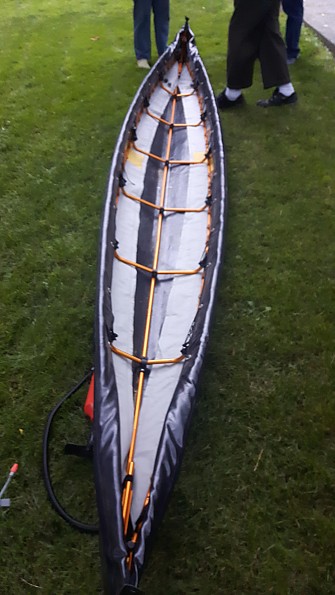
It is very durable. The hull is a fairly thick PVC fabric. On my trip this fall, I dragged it, fully loaded (30 lbs of gear) up a couple of shallow creeks trying to avoid portages. When I had no choice I found the easiest way to portage was doing double carries, moving my gear first then carring the kayak on my head using the seat for cushoning. I did apporoximately 4 km. of portages and didn't find it akward or difficult. I have read of people constructing portage yokes or using SUP carrying straps as well.
Defintley happy with my purchase and looking forward to more adventures on the water in the future.
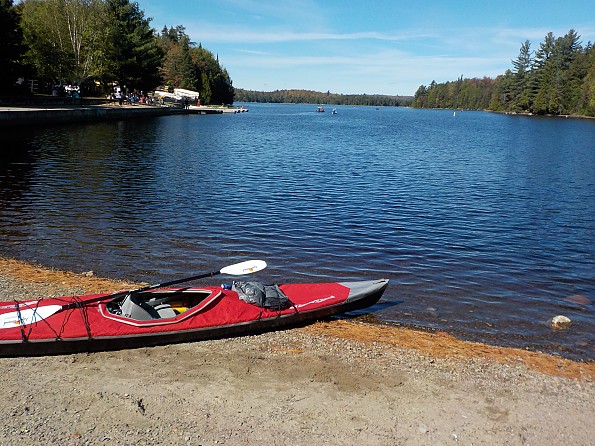
Source: bought it used
Your Review
Where to Buy
You May Like
Specs
| Price |
Historic Range: $1,499.93 |
| Length |
15 feet (455 cm) |
| Width |
23 inches (58 cm) |
| Weight |
39 pounds (17.7 kg) |
| Capacity |
300 pounds (135 kg) |
| Packed Bag Size |
33 in x 12 in x 20 in |


